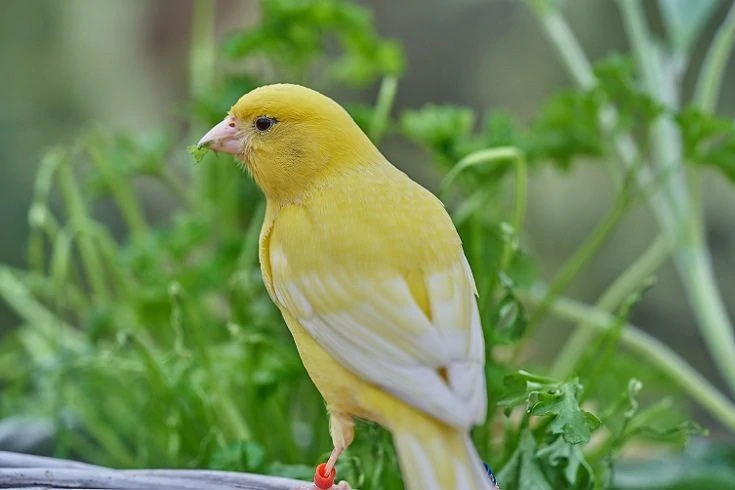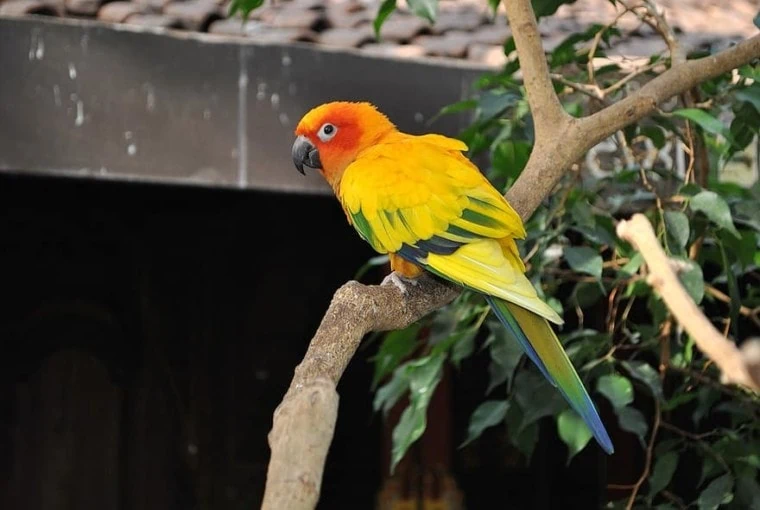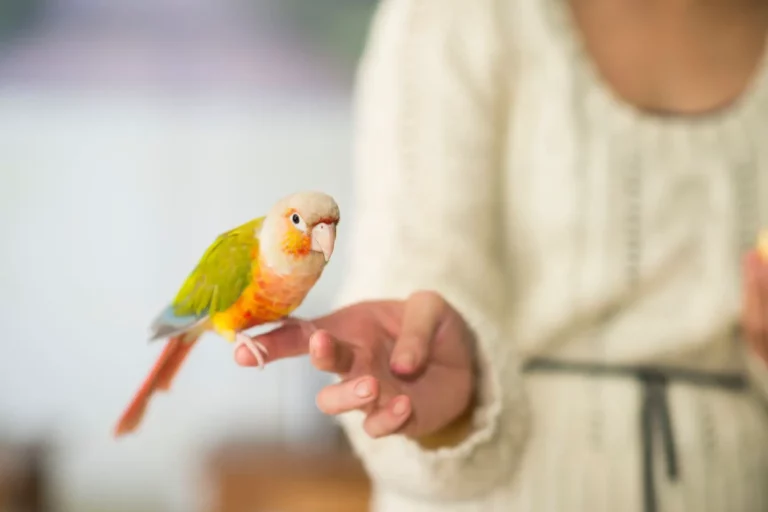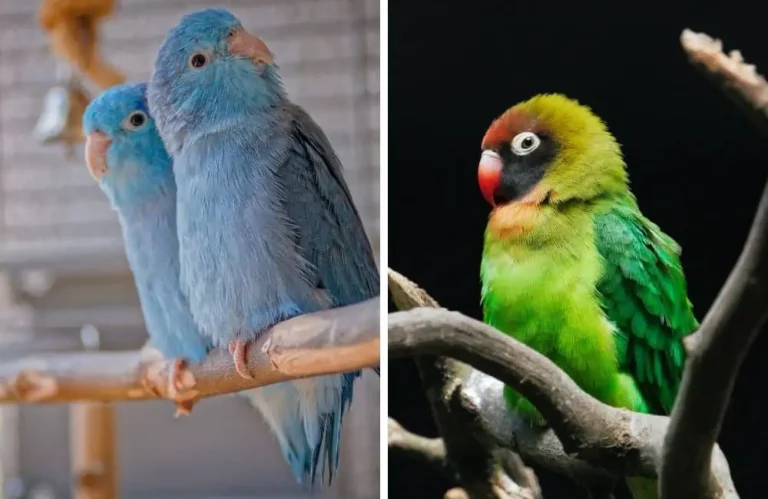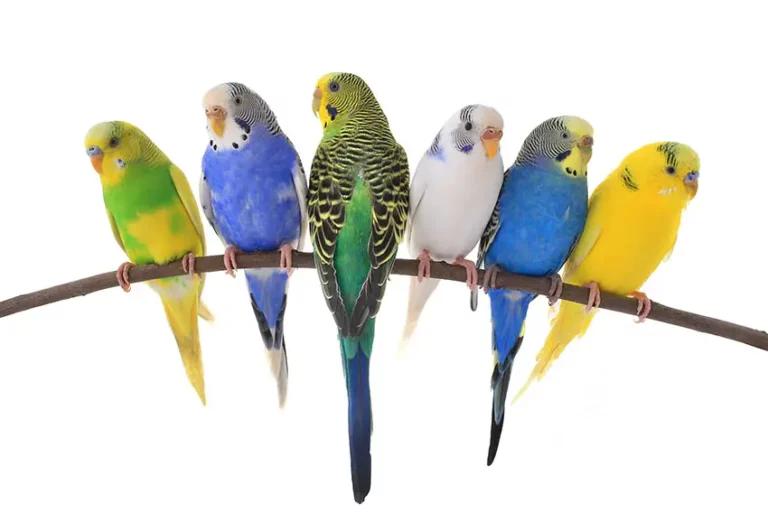Indoor Vs Outdoor Birds: Which is the Best Fit for You?
Welcome to our comprehensive guide on indoor vs outdoor birds! As bird enthusiasts, we understand the importance of providing our feathered friends with a safe and nurturing environment.
Deciding between keeping your bird indoors or in an outdoor aviary can be a challenge, as both options offer their own unique advantages.
In this blog post, we will explore the factors to consider when choosing the best environment for your pet birds, taking into account the specific needs of different bird species. Our goal is to help you make an informed decision that will promote the health, happiness, and well-being of your beloved companion.
So, let’s dive into the world of indoor and outdoor birds and discover the best living situation for your feathered family members!
The Benefits of Keeping Birds Indoors
Many bird owners choose to keep their pets indoors, providing a comfortable and controlled environment for their feathered companions. In this section, we will discuss some of the advantages of keeping birds indoors and how this can contribute to their overall well-being.
Safety from predators and other outdoor dangers
Indoor birds are protected from potential threats such as predators, including cats, dogs, and wild birds of prey. This added layer of security can provide peace of mind for bird owners, knowing that their pet is safe from harm.
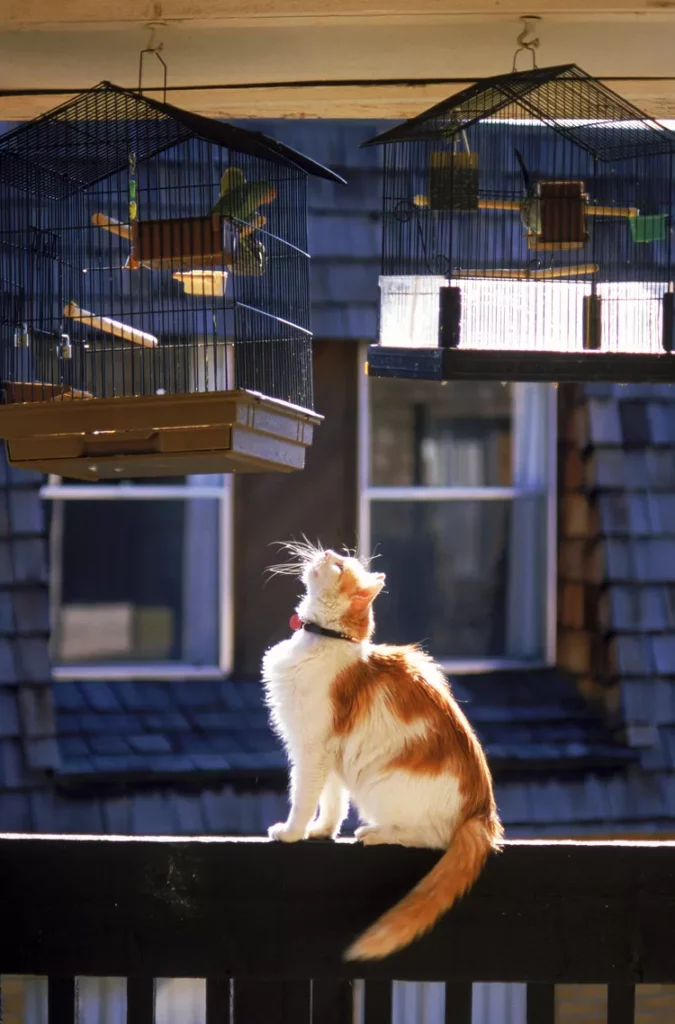
Protection from extreme weather conditions
By living indoors, birds are shielded from extreme temperatures, heavy rain, snow, and harsh winds. This allows you to maintain a consistent temperature and humidity level, ensuring that your bird stays comfortable and healthy throughout the year.
Easier monitoring of health and well-being
Keeping your bird indoors makes it easier to monitor their health, eating habits, and behavior. You can quickly identify any changes or potential issues, allowing for prompt veterinary intervention if needed.
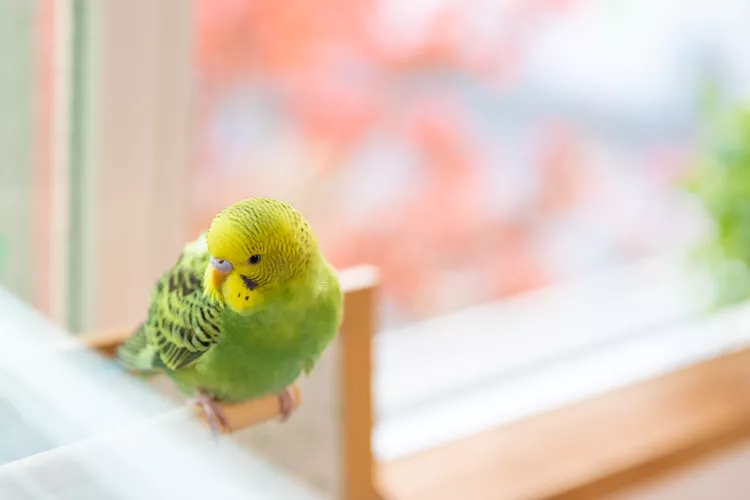
Enhanced bonding opportunities with human companions
Indoor birds often have more opportunities to bond with their human caretakers. Regular interaction, such as handling, playing, and training, can lead to a stronger connection between you and your pet, which can be beneficial for both you and your bird.
Control over diet and exposure to toxic substances
By keeping your bird indoors, you have more control over their diet and can ensure they are consuming a balanced, species-appropriate nutrition plan. Indoor birds are also less likely to encounter toxic substances, such as pesticides and poisonous plants, which may be present in outdoor environments.
Keeping your bird indoors provides a controlled, safe environment that allows for close monitoring of their health and well-being. It also promotes strong bonds between birds and their human companions and ensures access to a healthy diet and minimal exposure to harmful substances.
The Advantages of Outdoor Aviaries
While keeping birds indoors has its merits, outdoor aviaries offer unique benefits that can enhance your birds’ quality of life. In this section, we will explore the various advantages of providing an outdoor environment for your avian friends.
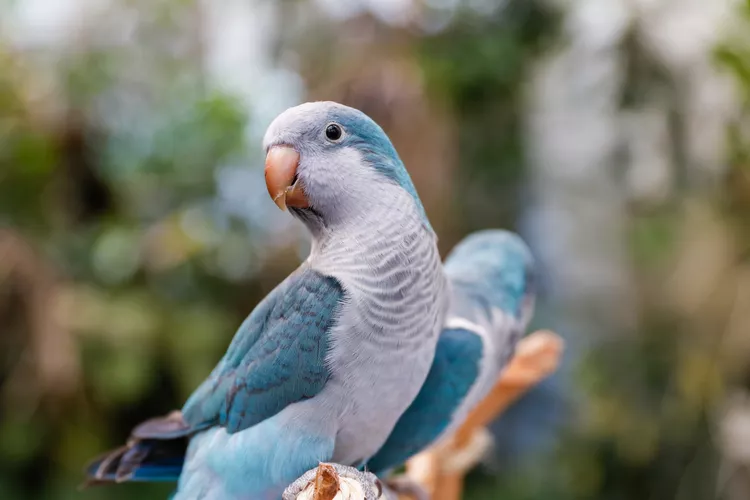
Larger space for natural behaviors and flight
Outdoor aviaries often provide more space for birds to spread their wings and engage in natural behaviors such as flying, perching, and foraging. This increased freedom of movement can contribute to a bird’s physical fitness and mental well-being.
Exposure to natural sunlight and fresh air
Birds housed in outdoor aviaries benefit from direct exposure to natural sunlight, which is crucial for the synthesis of vitamin D3 and overall health. Fresh air circulation also promotes a healthier environment by reducing the build-up of dust and allergens.
Stimulation from natural surroundings
An outdoor environment provides a rich, dynamic sensory experience for birds. The sights, sounds, and smells of nature can offer mental stimulation, promoting curiosity and reducing boredom-related behaviors such as feather plucking or excessive vocalization.

Opportunities for socialization with other birds
Outdoor aviaries can accommodate multiple birds, allowing them to socialize, interact, and form bonds with one another. This natural social setting can enhance your bird’s emotional well-being and lead to a happier, more balanced life.
Lower risk of household hazards
Outdoor aviaries remove the risk of common household hazards such as toxic fumes from non-stick cookware, scented candles, or household cleaning products. This helps to create a safer environment for your birds to thrive in.
In summary, outdoor aviaries offer birds the opportunity to enjoy a more natural lifestyle, with ample space for exercise, natural sunlight, fresh air, and opportunities for social interaction. By providing a stimulating, safe environment, you can contribute to your birds’ overall health and happiness.
Factors to Consider When Choosing the Ideal Environment
When deciding between an indoor or outdoor environment for your bird, it’s essential to consider several factors that can impact their well-being. In this section, we will discuss the key factors you should take into account when making this decision.
Species-specific requirements
Different bird species have unique needs when it comes to their living environment. Research the specific requirements of your bird species, including temperature, humidity, and space preferences, to determine whether an indoor or outdoor setting would be more suitable.
Space constraints
Consider the space available in your home or yard when deciding on the ideal environment for your bird. Ensure that you have enough room to provide an appropriately sized enclosure, whether indoors or outdoors, to accommodate your bird’s needs for exercise and mental stimulation.
Climate and weather
The local climate and weather patterns can play a significant role in determining the most suitable environment for your bird. If you live in an area with extreme temperatures, harsh weather conditions, or frequent storms, an indoor environment may be the safer option for your pet.
Your lifestyle and commitment
Your daily routine, work schedule, and commitment to bird care are crucial factors to consider when choosing between an indoor and outdoor environment. If you have limited time for interaction, an outdoor aviary may provide more opportunities for natural enrichment and socialization. However, if you enjoy spending time with your bird and can commit to regular interaction, an indoor environment may be more suitable.
Budget and available resources
Building and maintaining an outdoor aviary can be more costly than providing an indoor environment, due to additional expenses such as construction materials, heating or cooling systems, and predator-proofing measures. Assess your budget and resources to determine which option is more feasible for you and your bird.
By carefully evaluating these factors, you can make a well-informed decision on whether an indoor or outdoor environment is the best fit for your bird’s specific needs and your unique circumstances.
How to Create a Safe and Stimulating Indoor Environment
If you decide that an indoor environment is best for your bird, it’s essential to ensure that their living space is both safe and stimulating. In this section, we will discuss some tips and strategies for creating a comfortable, enriching indoor environment for your feathered companion.
Providing appropriate cage size and furnishings
Choose a cage that is spacious enough for your bird to stretch their wings and move around comfortably. Equip the cage with suitable perches, food and water dishes, and nesting areas to create a cozy and functional space for your bird.
Ensuring proper lighting and ventilation
Birds require exposure to natural light or a full-spectrum artificial light source to maintain their health. Ensure that your bird’s indoor space has access to adequate lighting and proper ventilation to prevent the buildup of dust and allergens.
Offering toys and enrichment activities
A variety of toys and enrichment activities are essential for keeping your bird mentally stimulated and engaged. Rotate toys regularly and provide opportunities for foraging, climbing, and problem-solving to help prevent boredom and promote mental well-being.
Establishing a consistent daily routine
Creating a consistent daily routine can help your bird feel secure and comfortable in their indoor environment. Establish regular times for feeding, cleaning, and social interaction to create a sense of stability and predictability for your bird.
Promoting social interaction and mental stimulation
Regular social interaction is crucial for your bird’s emotional health. Spend time with your bird daily, engaging in activities such as talking, training, or play. You can also consider providing a companion bird if appropriate for your species and circumstances.
By implementing these strategies, you can create a safe and stimulating indoor environment that caters to your bird’s physical and emotional needs. This will help ensure that your feathered friend thrives and enjoys a fulfilling life as an indoor pet.
Tips for Building and Maintaining an Outdoor Aviary
If you opt for an outdoor aviary, it’s essential to construct and maintain a secure and comfortable space for your birds. In this section, we will discuss various tips for building and maintaining an outdoor aviary that promotes your birds’ health and well-being.
Choosing the right location and materials
Select a location for your outdoor aviary that offers protection from harsh weather, direct sunlight, and strong winds. Use durable, non-toxic materials for construction to ensure a safe and long-lasting enclosure.
Ensuring predator-proof construction
To protect your birds from predators, construct the aviary with strong, secure materials, such as wire mesh or metal bars. Install additional safety measures, such as predator guards, to further deter potential threats.
Providing shelter and appropriate perches
Include sheltered areas within the aviary to offer your birds protection from the elements and a safe space to rest. Provide a variety of perches, including natural branches and different textures, to promote foot health and encourage natural behaviors.
Implementing proper sanitation and pest control measures
Regular cleaning and proper sanitation are essential for maintaining a healthy outdoor aviary. Remove waste and spoiled food daily, and deep-clean the aviary on a regular basis. Implement pest control measures to keep rodents, insects, and other potential hazards at bay.
Monitoring bird behavior and health regularly
Even in an outdoor aviary, it’s important to monitor your birds’ behavior and health closely. Regularly observe your birds for signs of illness, injury, or stress, and consult with an avian veterinarian if any issues arise.
By following these tips, you can create a secure and enriching outdoor aviary that caters to your birds’ physical and emotional needs. With proper care and maintenance, an outdoor aviary can offer your birds a stimulating, natural environment in which to thrive.
Final thoughts
Deciding between an indoor and outdoor environment for your birds can be challenging, but understanding the unique advantages of each option can help guide you towards the best choice for your feathered friends. Ultimately, the ideal living situation depends on your bird’s specific needs, your local climate, available space, lifestyle, and budget.
By carefully considering these factors and implementing the tips provided in this guide, you can create a safe, comfortable, and stimulating environment that caters to your birds’ well-being, whether indoors or in an outdoor aviary. Remember, a happy, healthy bird is a joy to care for, and your efforts in providing the best possible environment will be rewarded with a strong bond and a thriving feathered companion.
Frequently Asked Questions
Can I switch between indoor and outdoor environments for my bird?
Yes, many bird owners choose to switch between indoor and outdoor environments depending on the weather and other factors. Ensure your bird is properly acclimated and supervised during transitions.
Are some bird species better suited for indoor or outdoor living?
Yes, certain bird species may be better suited for one environment over the other. Research your bird’s specific needs and consult with an avian veterinarian to determine the best environment for your pet.
How can I make my indoor space safer for my bird?
To make your indoor space safer, eliminate any potential hazards such as toxic houseplants, open water sources, and dangerous household items. Additionally, keep doors and windows closed when your bird is out of its cage.
Can outdoor aviaries be used year-round?
This depends on your local climate and the specific needs of your bird species. In colder regions or during extreme weather, you may need to provide a heated indoor space or take additional precautions to ensure your birds’ comfort and safety.

